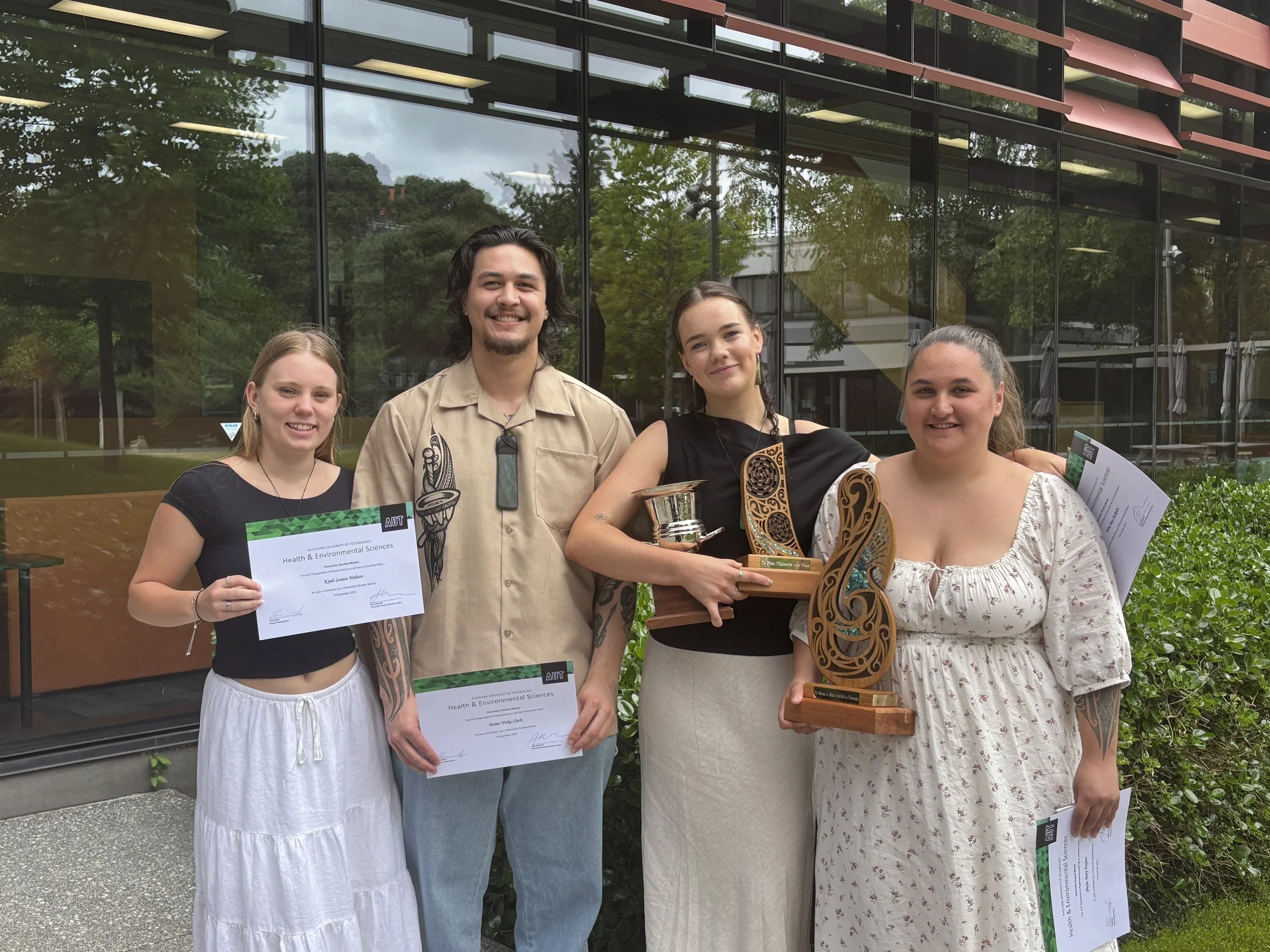Dante Waka Clark
Meet Dante, a recent MAPmedic tauira who graduated with a Bachelor of Health Science in Paramedicine at the December 2024 Summer graduation.
Dante (centre) with his Grandad (right) and Uncle (left).
Kia ora. Ko Dante tōku ingoa. He uri ahau nō Waikato Tainui. Kei te noho ahau ki Tamaki Makaurau.
Why did you study paramedicine?
From a young age, I always knew I was meant to work in healthcare. I had a strong desire to help and care for others, especially tangata whenua.
I stumbled upon paramedicine by chance during a defensive driving course in Year 12 when someone mentioned they were a paramedic. Before that, I had never considered it as a career. I went home and researched the role, and immediately fell in love with it. Since then, I’ve chosen paramedicine because it allows me to provide care within the community—something many other healthcare jobs don’t offer.
How did MAPmedics assist you while completing the paramedicine degree?
MAPmedics has been absolutely crucial to my growth as a paramedic. I wouldn't be where I am today without it. It provided a safe space to ask questions and practice simulations that I felt too whakamā to do in class. The environment was incredibly positive, and I was able to build close relationships with lecturers and other Māori and Pasifika students from different semesters.
There are so many capable Māori and Pasifika students who just need a supportive space to reach their full potential, so I would always advocate for a similar group in other healthcare degrees.
What do you think are some of the biggest misconceptions about MAPmedics?
From the perspective of Māori students, I think some feel too whakamā to attend because they don’t feel ‘Māori enough,’ can’t speak the reo, or aren’t familiar with their whakapapa. There’s no need to feel shy, as no one will ever judge you for not knowing. While culture is important, the primary goal of MAPmedics is to learn more about paramedicine and build relationships with one another. MAPmedics is here to help future paramedics reach their full potential and ensure Māori and Pasifika students stay through to graduation, so they can represent their people in the ambulance sector.
What have been some of your highlights while completing the paramedicine degree?
I’ve made lifelong friends at university. There’s something about the unique and sometimes traumatic world of paramedicine that brings people closer together and creates unbreakable bonds. I’ve also had many positive experiences during placements, like making my patients smile and laugh, and building strong relationships with my mentors, which I continue to maintain even after finishing my studies.
For the past few years, my nana had been making a korowai for my graduation. Sadly, she passed away before she could finish it, and my cousin ended up completing it. While in hospice, all she could talk about was the korowai and how proud she was of me. Wearing it at graduation was incredibly special, and I was comforted knowing she was with me in spirit.
Dante (second from left), with his close paramedicine friends/other MAPmedics tauira.
You graduated with academic distinction. What advice would you give to other Māori and Pasifika students who aspire to achieve academically like you?
Plan ahead: Don’t leave assignments until the day before they’re due. Start early and work on them bit by bit. This helps with stress management and saves time.
Study as you go: Review material as you learn it. While it may seem like overkill, it saves time in the long run. By the end of the semester, you’ll be revising what you already know, while others are cramming.
Use online resources: YouTube and TikTok are excellent sources, especially for subjects like pathophysiology and pharmacology.
Expect challenges: There will be times when things feel overwhelming—balancing placements, assignments, family commitments, social life, and exam prep.
Don’t let bad grades discourage you: Sometimes you might receive a grade on an assignment you thought you did well on. This is normal. Ask your lecturer for feedback and use it to improve for the next assignment.
What are your plans now you have graduated?
I'm moving to the UK to work as a Paramedic with the NHS. I'm excited to travel on my days off and gain work and life experience from the other side of the world. While I plan to pursue further study eventually, for now, I’m looking forward to enjoying the freedom of no university and the opportunity to travel.


